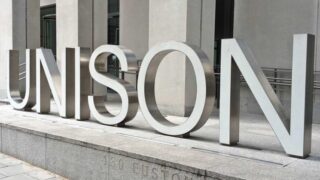UNISON has welcomed the peace agreement in Colombia as “a major achievement that could lead to real, lasting progress for ordinary Colombians”.
But the union’s head of international affairs Nick Crook also urged the international community to put in place “effective human rights monitoring” in what remains a sensitive time in the South American country.
The Colombian government and the Farc rebel group signed their “final, full and definitive” peace accord in Havana on Wednesday, after four years of talks. It ends a 52-year conflict that has killed an estimated 220,000 people and displaced millions.
Under the terms, the Farc will give up its armed struggle and join the legal political process. The accord also covers land reform, justice for victims of the conflict and their families, land distribution and relocation of the forcibly displaced in rural areas, and a united front against drug trafficking.
President Juan Manuel Santos is now set to call a referendum, on 2 October, calling on Colombians to endorse the deal.
But with right-wing former president Alvaro Uribe leading a campaign against the agreement, public opinion is still divided.
UNISON will continue to work with Justice for Colombia, which is now recognised as official advisers to the peace process, to build support for the agreement in the run-up to the referendum.
Throughout the conflict, the Colombian government has tended to class all activists as Farc guerrillas. As a result, more than 500 trade unionists and other political activists have been murdered in the last five years alone, with hundreds more kidnapped and tortured.
UNISON urges Colombian government to protect activists
Many of those atrocities have been committed by right-wing paramilitary groups.
Last November, a UNISON delegation to Colombia heard evidence from trade unions and social movements of a rise in paramilitary activity. And 35 human rights defenders were killed in the first six months of 2016, a rise of 13% on 2015.
“With their links to the drug trade and other forms of organised crime, these groups have the most to lose from the agreement and will seek to undermine it,” said Mr Crook.
“So many courageous activists and their families have already suffered terribly due to this conflict. We owe it to them, and to those who still fight to uphold the rights of their fellow workers, to ensure that the violence stops now.
“The international community – and especially the UN and EU – have to put in place effective human rights monitoring across the whole of Colombia now, to stem this rise in paramilitary activity.”



